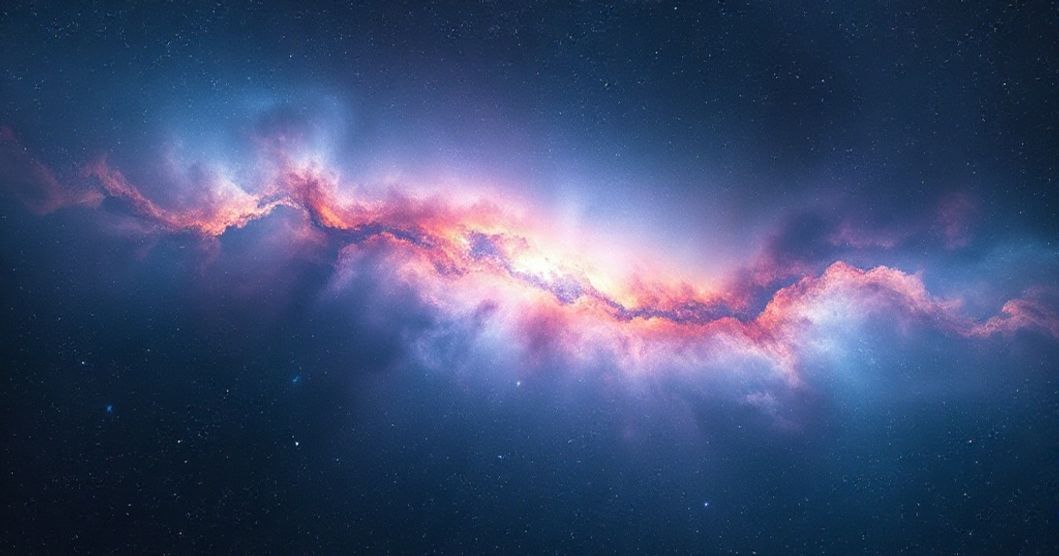Part 1: Dream Presentation
Dreams often serve as portals to our unconscious, revealing fragments of our psyche we may not fully recognize in waking life. This recurring dream, spanning three nights, offers a rich tapestry of symbolic imagery that demands exploration. The dream begins in a futuristic alien spa—a bizarre hybrid of luxury hotel and wellness retreat—where sleek metallic surfaces meet organic, bioluminescent architecture. Guests lounge in impossibly comfortable seating, sipping glowing beverages that shift color with each sip, while snack stations offer strange, pulsing textures. The dream’s tension emerges when the dreamer triggers an 'alert' by interacting too aggressively with others, activating a security system that hunts them throughout the building. In one iteration, the dreamer crashes into an alien couple’s family suite, bolts through a window, and is transported via a surreal 'hair carriage' to a specific section of the Ming Dynasty in China—a historical construction site with horse-drawn carriages and traditional workers. Most striking is the dreamer’s attire: a hybrid of rockstar costumes (Corey Taylor or Joey Jordison), worn while 'chilling' with others in the carriage.
Part 2: Clinical Analysis
The Symbolic Landscape of the Dream: Alien Spa, Security, and Historical Transport
Want a More Personalized Interpretation?
Get your own AI-powered dream analysis tailored specifically to your dream
🔮Try Dream Analysis FreeThe alien spa functions as a metaphor for modernity’s paradoxes: a space of supposed relaxation and connection that becomes a labyrinth of surveillance when boundaries are crossed. The 'alert' system symbolizes internalized judgment or fear of punishment for asserting oneself, while the window escape represents a primal urge to flee restrictive environments. The Ming Dynasty setting introduces historical depth, likely reflecting cultural curiosity or ancestral connection, with its horse-drawn carriages embodying a slower, more deliberate time compared to the futuristic chaos. The 'hair carriage'—a surreal vehicle of flowing strands—suggests the dreamer’s vulnerability, as hair often symbolizes identity and self-expression; being trapped in this form of transport hints at feeling 'stranded' in one’s own identity.
The rockstar attire (Corey Taylor/Joey Jordison) anchors the dream in musical identity. These specific musicians represent artistic rebellion, raw emotion, and stage presence—qualities the dreamer may seek to express or feel pressured to embody. The 'chilling' in the carriage with others implies a need for connection despite the dream’s chaotic elements, suggesting the dreamer craves community during periods of personal uncertainty.
Psychological Currents: Jungian, Freudian, and Cognitive Perspectives
From a Jungian lens, this recurring dream acts as a compensation for the dreamer’s waking life, addressing unconscious tensions between the 'shadow' (the rebellious, rockstar aspect) and the 'persona' (the socially acceptable self). The alien spa could represent the 'collective unconscious'—a shared space of human experience that feels alien yet familiar. The security alert mirrors the superego’s demands for conformity, while the escape symbolizes the ego’s need for autonomy.
Freudian analysis might interpret the spa as a manifestation of repressed desires for pleasure and connection, with the 'alert' system representing unresolved guilt or fear of judgment. The Ming Dynasty’s historical setting could reflect repressed cultural identity or ancestral issues, while the rockstar attire symbolizes repressed sexual or creative energy.
Cognitively, the dream synthesizes real-world experiences: familiarity with historical periods, music fandom, and modern surveillance culture. The brain’s tendency to consolidate memories during sleep may explain the recurring elements, as the mind processes stressors or unmet needs through symbolic narratives.
Emotional and Life Context: Connecting the Dream to Waking Reality
The recurring nature suggests the dream addresses persistent emotional themes. The 'alert' system likely reflects anxiety about being 'watched' or judged in daily life—perhaps work stress, social pressure, or performance anxiety. The rockstar attire hints at unexpressed creativity or a desire to break free from conventional expectations, while the Ming Dynasty setting may stem from cultural interest, travel aspirations, or nostalgia for stability in a rapidly changing world.
The dream’s construction site imagery suggests a period of 'building' or transformation in the dreamer’s life—perhaps career changes, relationship shifts, or personal growth. The 'hair carriage' transport implies feeling 'carried away' by circumstances, unable to control one’s direction, yet finding unexpected camaraderie in the chaos.
Therapeutic Insights: What the Dream Reveals About Growth and Integration
The dream invites reflection on three key areas: boundary-setting, identity expression, and cultural connection. To integrate these insights, the dreamer might journal about when they feel 'alerted' in waking life—are these real threats or internalized fears? Exploring the rockstar persona could reveal creative outlets or suppressed passions needing expression.
Practical steps include creating a 'dream journal' to track variations in the recurring theme, noting how the dreamer’s emotions shift during each iteration. Mindfulness practices focused on breathwork could help manage the anxiety symbolized by the security alert. For cultural curiosity, researching Ming Dynasty history or visiting historical sites might deepen understanding of that symbolic layer.
FAQ Section
Q: Why do I keep having the same dream with these specific elements?
A: Recurring dreams often address unresolved emotions or themes. Your dream may process anxiety about boundaries, identity, or cultural connection, needing repetition to fully integrate these feelings.
Q: What does the rockstar identity symbolize?
A: The specific musicians suggest artistic expression, rebellion, or creative energy. It may represent a desire to embrace your authentic self or process unexpressed creativity.
Q: Why the Ming Dynasty setting? Is there a cultural meaning?
A: The Ming Dynasty symbolizes prosperity, cultural richness, and historical legacy. Your dream may reflect interest in heritage, history, or a longing for stability in a changing world.
